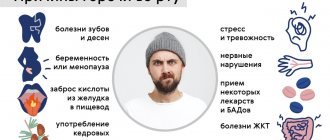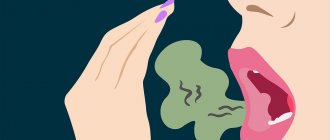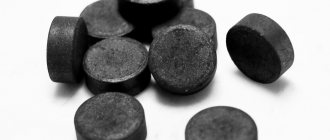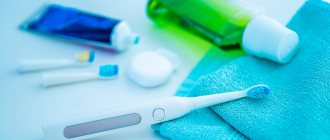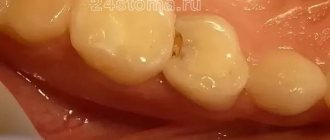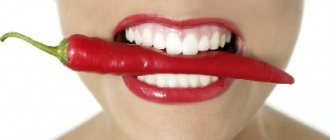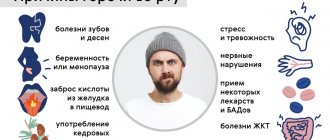During the normal digestive process, bile is involved in the breakdown of fats, proteins and carbohydrates that accumulate in the intestines. After performing its function, bile enters the duodenum. There should be no bile in the stomach or esophagus. However, there are diseases in the process of which this scheme is disrupted and bile enters the stomach from the duodenum. There it mixes with gastric juice, after which bile refluxes into the esophagus.
Nocturnal acid reflux: how to stop it?
If you experience acid reflux at night, you may want to make a few dietary and lifestyle changes.
For example, because standing up helps with digestion, doctors recommend eating dinner a few hours before bed. Doctors also recommend raising the head of the bed to prevent gravity from moving food from the stomach into the esophagus.
If you suffer from this condition frequently, you may need medical help.
Research suggests that the hormone melatonin or medications with similar effects may reduce symptoms.
In this article, we will discuss the symptoms, causes, and treatment of acid reflux at night. We will also describe some methods for preventing and managing reflux.
Reinforcement of therapy - proper nutrition
Proper nutrition - prevention of gastrointestinal diseases
To consolidate the positive effect after treatment, the patient must carefully monitor his diet and lifestyle. In other words, to prevent a recurrence of the disease, it is necessary to follow a diet, eat small meals (eating small portions throughout the day - 5-7 times a day) and give up bad habits. Excessively spicy and fatty foods must be completely excluded from the diet.
You should also avoid fried and smoked foods. Today, there are a lot of recipes for delicious and healthy food that is steamed or boiled. Nutritionists have developed dozens of diets that can prevent the reflux of bile into the esophagus.
Acid reflux: symptoms
Acid reflux, also known as heartburn, typically involves a burning sensation in the stomach, chest, and throat.
Other possible symptoms include:
- difficulty swallowing
- chest pain
- nausea
If the condition occurs regularly, it may indicate gastroesophageal reflux disease (GERD).
Trying to sleep
The International Foundation for Gastrointestinal Disorders (IFFGD) notes that 79% of people with GERD symptoms experience them during sleep.
75% of people with the condition say symptoms affect their sleep, and 40% say loss of sleep affects their ability to get up.
Although GERD affects sleep, sleep deprivation also affects GERD. Lack of sleep can cause the esophagus to become more sensitive to acid.
Acid reflux that occurs after sleep has more severe symptoms than daytime acid reflux.
This combination of sleep disturbances and more severe symptoms means that acid reflux affects the quality of life of people with the condition.
Symptoms of bile ingestion
The bitter taste of bile in the mouth is not the only sign of fluid reflux. People with reflux suffer from heartburn. Pain in the upper part of the stomach occurs at night or after a sudden change in body position.
When bending over, doing physical activity, and soon after a person moves from a vertical to a horizontal position, a feeling appears as if there is a burning and pinching sensation in the larynx. In the mornings, it seems that my throat begins to hurt.
After eating, nausea occurs, and less often, attacks of vomiting (bile is mixed into the masses). Filling the stomach with food or liquid causes hiccups.
Acid reflux: causes
Acid reflux occurs when stomach contents flow into the esophagus. This occurs due to weakening of the esophageal sphincter.
The sphincter is a muscle that acts like a valve. It relaxes, allowing the swallowed food to enter the stomach. It then closes to prevent food from moving in the opposite direction. If the sphincter is weak, it may not function properly.
Why does the sphincter weaken?
Various factors can weaken the lower esophageal sphincter or cause it to relax when it should remain closed.
According to the National Institute of Diabetes and Digestive and Kidney Diseases (NIDDK), these factors may include:
- smoking
- obesity
- pregnancy
- hiatal hernia
- certain medications, such as nonsteroidal anti-inflammatory drugs and some medications that doctors use to treat depression
Reasons why bile is thrown into the esophagus
Bile reflux into the esophagus - unpleasant sensations
The entry of bile occurs in most cases from inflammatory diseases of the liver or gallbladder (hepatitis, cholecystitis). There may also be hydraulic reasons: disruption of the passage of bile flows, improper functioning of the sphincter, a kind of valve that is located between the stomach and duodenum.
With such deviations, bile refluxes into the esophagus. The possibility of the disease occurring due to poor diet and bad habits should not be ruled out. Experts have determined a list of the main reasons why bile is thrown into the esophagus:
- with excessively frequent consumption: carbonated drinks, strong tea, coffee
- from bad habits: alcohol, smoking, obesity caused by overeating
- with a hernia formed in the digestive tract, with cardiovascular diseases
- in the last months of pregnancy
- during bloating
- when eating quickly
The reflux of bile into the esophagus can be a single, rare occurrence - this should not happen regularly.
Control
According to the American Academy of Allergy, Asthma and Immunology (AAAAI), acid reflux can be relieved with remedies such as:
- raise the head of the bed 6-8 inches
- do not go to bed for 2–3 hours after eating
- Eat small meals more often and avoid heavy meals before bed
The side of your body you sleep on can also make a difference. A 2015 study found that sleeping on your left side reduces acid reflux.
To sleep calmly
The IFFGD recommends measures to promote restful sleep. A good night's rest can help prevent symptoms and improve the quality of life for patients with GERD.
The proposed measures recommend:
- go to bed and wake up at the same time every day
- sleep in a quiet, dark, and electronic-free environment
- avoid caffeine 8 hours before bed
Why is reflux dangerous?
The reflux of bile masses, which occurs one or more times with a large interval of time, is not dangerous. But long-term, regular exposure to the mucous membranes of the esophagus and oral cavity leads to negative consequences. The masses coming from the stomach burn the throat, provoke inflammation, and hoarseness of the voice.
Frequently repeated reflux of bile without treatment leads to the following consequences:
- ulcers on the surface of the esophagus;
- bleeding;
- narrowing of the esophagus (stricture);
- problems with swallowing (due to areas of narrowing).
Exposure to acid during reflux in 10% of patients causes the replacement of squamous stratified epithelial cells with columnar epithelium (Barrett's esophagus). The pathology is considered a precursor to esophageal cancer.
Inhalation of masses coming from the gastrointestinal tract provokes irritation of the respiratory tract. Coughing attacks occur and the function of the respiratory organs is impaired.
Prevention
There are some changes you can make to your diet and lifestyle that can prevent GERD symptoms.
Lifestyle changes
AAAAI notes that the following lifestyle adjustments may help prevent acid reflux from occurring:
- reducing alcohol consumption
- to give up smoking
- achieving or maintaining a moderate weight
Dietary changes
Diet can also play a role in preventing acid reflux.
Foods to Avoid
IFFGD advises avoiding potential dietary triggers such as:
- chocolate
- fatty or fried foods
- carbonated drinks
- onion
- tomatoes and citrus fruits
Foods to include in your diet
IFFGD recommends a diet that includes the following foods in the diet that may help prevent or reduce acid reflux:
- fruits
- vegetables
- whole grains
- foods with healthy fats such as olives, avocados and fatty fish
- lean meat
- eggs
How to get rid of the problem
You can forget about the bitterness in your mouth if you don’t delay seeing a doctor. Treatment for reflux esophagitis is aimed at accelerating the movement of food from the stomach into the intestines, normalizing sphincter tone, reducing the destructive effect of bile and gastric secretions on the mucous membrane of the esophagus and oral cavity.
Therapy includes medication and dietary nutrition. Traditional medicine methods help get rid of the problem.
Medicines
When bile exits through the stomach and reaches the esophagus and mouth, doctors prescribe complex therapy:
- The basis of treatment is drugs from the group of proton pump inhibitors - Ranitidine, Omez. Their use is aimed at reducing irritation of the mucous membranes.
- Treatment with antacids (Maalox, Gastrofarm, Almagel) reduces the acidity of gastric juice and prevents irritation of the mucous membrane.
- To speed up the movement of food, it is recommended to take Cisapride, Motilium.
- Ursoliv and Ursofalk help improve the flow of stagnant bile.
- For cramps and pain in the stomach, Drotaverine (No-shpu) and Papaverine are prescribed.
ethnoscience
For patients who have bile coming from their mouth, folk remedies can be used in parallel with medication treatment. A good effect for reflux esophagitis is obtained by taking a collection of yarrow flowers, St. John's wort, chamomile, calamus root, and sage herb. Prepare a mixture of herbs in equal parts. 2 tbsp. l. collection is poured into a glass of boiling water. Cover and leave for 35-40 minutes. Drink warm 20 minutes after meals twice a day. You can add 1/2 teaspoon of honey to the drink.
An infusion of 2 tbsp helps to relieve belching and nausea. l. smoker filled with 500 ml of boiling water. Take 50 ml of the drug at intervals of 3 hours until the nausea stops. The medicine also helps relieve inflammation, improves the flow of bile, and relieves stomach pain.
Flaxseed is ground in a coffee grinder and brewed like jelly. For a daily dose of medicine you need 3 tbsp. l. flax and 300 ml of water. Drink 1 tbsp strained. l. half an hour before meals.
Folk remedies can be used after consultation with a gastroenterologist. Before using the preparations, you must make sure that there is no allergic reaction to their components.
Diet
Bile in the throat is a reason to stop eating rich broths from meat, fish, and sour soups. Smoked foods, fried and fatty foods, and marinades are prohibited. The condition of a person with reflux esophagitis may worsen after consuming mushrooms, beans, alcohol, strong coffee and tea.
Gastroenterologists recommend consuming dairy products with a low fat percentage. Cereal dishes made with milk, with the addition of butter, are healthy. Traditional first courses should be replaced with puree soups. It is recommended to cook the meat by boiling it and chop it thoroughly before eating.
It is allowed to prepare salads from boiled beets and carrots. When fresh, these vegetables are best grated on a fine grater and served seasoned with oil. Fruits should be chosen that are not sour.
Healthy lifestyle
Those who often taste bile are advised to reconsider their lifestyle. Smokers and alcohol drinkers should avoid drinking alcohol and tobacco - they additionally irritate the mucous membranes of the mouth and larynx.
It is forbidden to have a heavy dinner. The last meal should be no later than 2 hours before going to bed. It is better to prepare a light dinner that will be quickly digested. Throughout the day, food portions should be small.
To avoid feeling an unpleasant burning sensation in the morning, you need to sleep on a high pillow. Sleepwear should be chosen that does not compress the stomach.
Treatment
For GERD in general, doctors may recommend one or more treatments:
Medicines
Over-the-counter medications that reduce stomach acid levels may help relieve GERD symptoms.
An older study evaluating the effect of the proton pump inhibitor (PPI) esomeprazole found that it alleviated bedtime heartburn and related sleep disturbances.
Operation
Doctors may recommend surgery if behavior changes and medications do not improve symptoms.
Surgical options may include fundoplication. During this procedure, the surgeon connects part of the stomach to the lower esophageal sphincter.
The Society of American Gastrointestinal and Endoscopic Surgeons states that surgeons typically perform fundoplications using laparoscopy. This procedure involves making several small incisions instead of one large one.
Melatonin
Melatonin is a hormone that the body produces before sleep. It helps us fall asleep and can help prevent or relieve symptoms of GERD, including acid reflux.
IFFGD found that deep sleep tends to improve GERD symptoms. This finding led them to believe that reducing the time spent awake after bedtime could reduce these symptoms.
They then conducted a study to test the effect of the sleep aid drug ramelteon, which works similarly to melatonin.
In the study, participants who took ramelteon before bed experienced fewer GERD symptoms at night. The benefit was attributed to the improvement in sleep produced by the drug.
What's more, a 2022 study reports that melatonin reduces acid secretion in the stomach and helps the lower esophageal sphincter stay closed when needed.
Given the results of two studies, it appears that melatonin may help by improving sleep quality and reducing the effects in the body that cause acid reflux.
Why does bitterness occur in the mouth? Recommendations for heartburn
14.04.2021
Bitterness in the mouth is a symptom that worries many people. And almost 100 percent of all people with a symptom of bitterness in the mouth are sure that talking about bile and gall bladder . Let's figure it out.
With what part of the tongue do we feel bitterness? We feel bitterness through the papillae on the tongue, usually the back wall of the tongue, that is, the root of the tongue. has absolutely nothing to do with bitterness in the mouth Bile is released into the duodenum, and then goes down the intestines , and our stool is colored brown, thanks to the pigments of bile. Bile cannot get into our mouths .
Therefore, the gallbladder and liver , and bile in general, in principle, have nothing to do with bitterness, and most often such sensations are associated with the effect of hydrochloric acid from the stomach on the walls of the esophagus . Why is this happening?
Everyone knows that the stomach contains hydrochloric acid. Ideally, hydrochloric acid should only be in the stomach and should not be thrown the esophagus For this purpose, there is a sphincter at the bottom of the esophagus - this is a muscle ring. It is closed all the time, opens only when food passes through the esophagus , lets food into the stomach , then closes again and should not return. It happens that it does not close or closes poorly. Acid from the stomach goes back into the esophagus and burns it. The esophagus is not used to the effects of acid, because the stomach is protected from acid, but the esophagus is not. Therefore, the esophagus immediately sends a signal to the brain , and the brain, in response to this signal, sends a signal to the salivary glands so that they secrete very alkaline saliva. This alkaline saliva, when swallowed, helps quench acid that irritates the esophagus . And this alkaline saliva has a very bitter taste.
The bitter taste in the mouth is the taste of alkaline saliva, which is produced in response to a burn in the esophagus . A disease that may be accompanied by a bitter taste is called gastroesophageal reflux disease , or popularly heartburn .
What should people who experience heartburn (bitterness in the mouth) not do?
In order to prevent this sphincter between the stomach and esophagus , some rules should be followed. Firstly, absolutely do not smoke. Secondly, avoid caffeinated products. It could be coffee, chocolate, cola, cocoa and so on. The next item is mint. All products containing mint should be avoided. These are chewing gum, candies, mint breath fresheners, mint teas. It is necessary to exclude onions, garlic in any form: fried, steamed, it doesn’t matter, any onion and garlic, as well as fatty, fried foods. And also after eating, you should not take a horizontal position for two to three hours.
But you must understand that all this will help alleviate the symptoms of heartburn and you will feel less bitterness, but this will not get rid of the causes of their occurrence, so you must additionally seek professional medical help. At the first symptoms, you should consult a doctor and have an examination - gastroscopy , so that the doctor can determine and help eliminate the cause of your heartburn . This could be a hernia , a burn, erosion, ulcer , or even the so-called Barrett's esophagus (and this is a precancerous disease).
Published in Gastroentorology Premium Clinic
